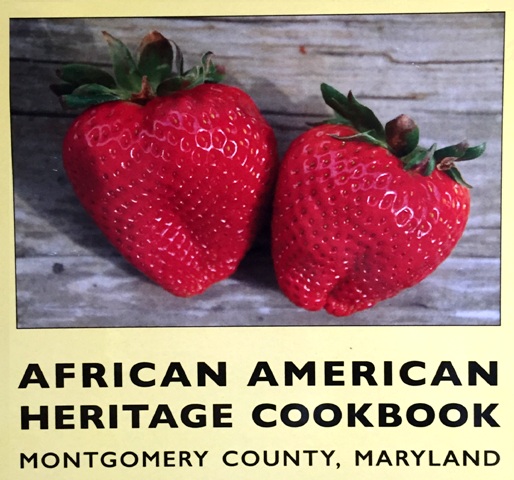Heritage Foodways in Culture, Traditions & History
Historical Excerpts by Dr. George W. McDaniel
Information taken from the Heritage Montgomery Website:
“Inspired by the stories of our ‘Community Cornerstones: African American Communities in Montgomery County’ video project, Heritage Montgomery has produced the African American Heritage Cookbook.
“The cookbook is a unique way to discover Maryland heritage foodways – the intersection of food in culture, traditions, and history – and bring attention to the rich cultural heritage of these local historic communities.
“It contains authentic Maryland recipes dating from the 1700-1800s as well as those collected from local church communities highlighting foods served at family and community gatherings like Homecoming and Juneteenth.
“Introductions to each chapter give an in-depth look at daily life in turn-of-the-century Montgomery County through firsthand accounts and narratives collected by historian Dr. George McDaniel in the 1970s.”
The African American Heritage Cookbook is available to purchase here. Profits from sales are being donated to the participating church communities to help support this important part of Montgomery County history.
The map above illustrates the way that the community was laid out — the open design helped with security as residents could see their neighbors, and especially strangers, coming and going. With the exception of shade trees near the houses, most every inch of land was planted to provide food for the table. From the African American Heritage Cookbook
Idella and Walter Craven with milk cans. During my research in the 1970s, individuals recalled that milk had once been “a now and then kind of thing” for many black families who did not have cows. Photo credit: George W. McDaniel, 1970s field research
Some elders could still recall their community founders, some of whom can be seen in the old photographs and portraits that they kept, such as this one of John Peters, a blacksmith, who had been born into slavery. Photo Credit: GWM, 1970s
The Jones Hall Sims House as it appeared in the 1970s with clapboard covering the original log structure. Photo Credit: GWM, 1970s
Bessie Lee feeding her chickens, circa 1970s. In Sugarland, as in most rural communities, chickens were plentiful. “You didn’t buy no eggs or chickens,” Lee recalled. GWM, 1970s
McDaniel is also the Executive Director Emeritus of Drayton Hall, a historic site in Charleston, SC, owned by the National Trust for Historic Preservation. He retired from Drayton Hall in 2015 after 25 years of distinguished service.
Header Image: Detail from the cover of the African American Heritage Cookbook
